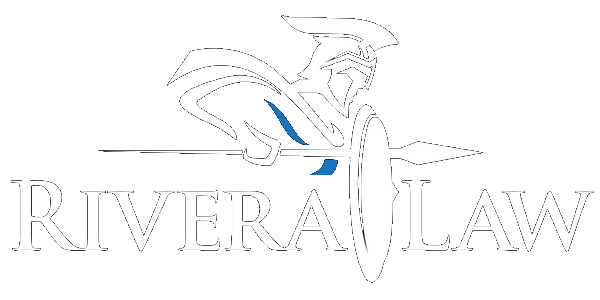What Is Qualified Immunity?
Attorney Vincent RiveraQUALIFIED IMMUNITY: WHY IT'S ALMOST IMPOSSIBLE TO SUE THE POLICE.
Qualified immunity is a legal doctrine that government officials use to shield themselves against civil rights violations, and it's often used as a shield by the police to defend themselves against civil rights violations, against civil rights lawsuits, against brutality lawsuits.
The key legal question in a qualified immunity defense is whether or not a clearly established right has been violated.
CLEARLY ESTABLISHED RIGHT
GEORGE FLOYD
Let's take for example George Floyd's case.
For his family to beat a qualified immunity defense, they're going to have to find a case where in that other case the police officers kneeled on someone's neck, choking him out, and he died, and the court says, "This was a civil rights violation."
Only then can they take that case, that exact scenario that's already happened, and use it to argue that a clearly established right was violated.
Procedurally, qualified immunity is raised at the very beginning of the case, and the very beginning of the case, the judge is going to decide whether or not qualified immunity applies.
If the judge rules that qualified immunity applies, then the case is dismissed, it's over, which means the jury never gets to hear the evidence, which means the jury never gets to make a decision.
CRITICISM OF QUALIFIED IMMUNITY
There's a lot of criticism surrounding qualified immunity. One of the big criticisms, is that the Supreme Court pulled this philosophy out of thin air.
The Supreme Court didn't base this philosophy on any kind of statutes that were in place. They essentially invented it, because they weren't happy with the civil rights statute.
Another criticism of qualified immunity is that this idea of a clearly established civil right is something that's extremely difficult to prove, because it means you need to find a case, with almost identical facts, and identical scenario, and that the court has ruled that, that's a civil rights violation.
The requirement that you have to have a clearly established constitutional rights violation.
The idea that you have to have a case ahead of you, a prior case precedent, that's set with identical facts, is a significant barrier. It's a significant barrier for plaintiffs, and in all likelihood, has deterred countless plaintiffs from even filing lawsuits in the first place.
The practice of qualified immunity is even broad criticism from U.S. Supreme Court Justice, Sonia Sotomayor. She's criticized the practice saying that it sanctions a shoot first and think later approach to police. The Justice goes on to call out the court for their history of qualified immunity rulings, pointing out that when the police are not allowed to use qualified immunity, the court says, "That was the wrong decision." But when they are allowed to use qualified immunity, the court always says, "No, no, no, that was the right decision." Essentially the Justice calls out the court for always finding in favor of qualified immunity.
ENDING QUALIFIED IMMUNITY ACT.
Qualified immunity has been criticized since it's very inception.
It's been criticized for giving law enforcement a blank check, for having no statutory basis, and for creating an unrealistic bar for plaintiffs to clear.
In light of recent events, Congressman Justin Amash, and Cory Booker, have introduced the "Ending Qualified Immunity Act." Congressman Amash has stated, "This pattern continues because police are legally, politically, and culturally insulated from consequences for violating the rights of the people whom may have sworn to serve. That must change so that these incidents of brutality stop happening.
Rivera Law, LLC
100 E. Park St, Suite 8, Olathe KS 66061
Give me a call at (913) 210-0844, schedule a private consultation or send me a secure email with the form below.

